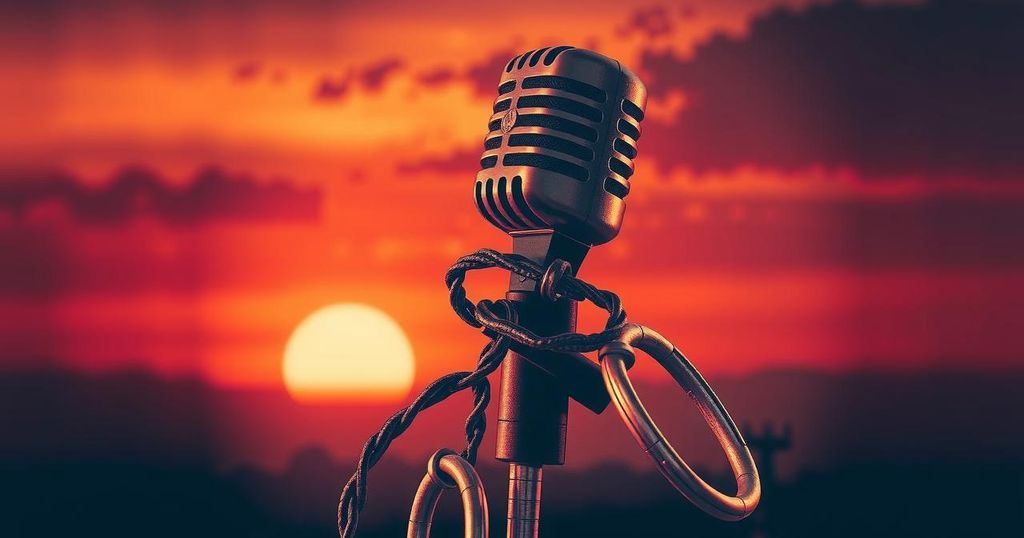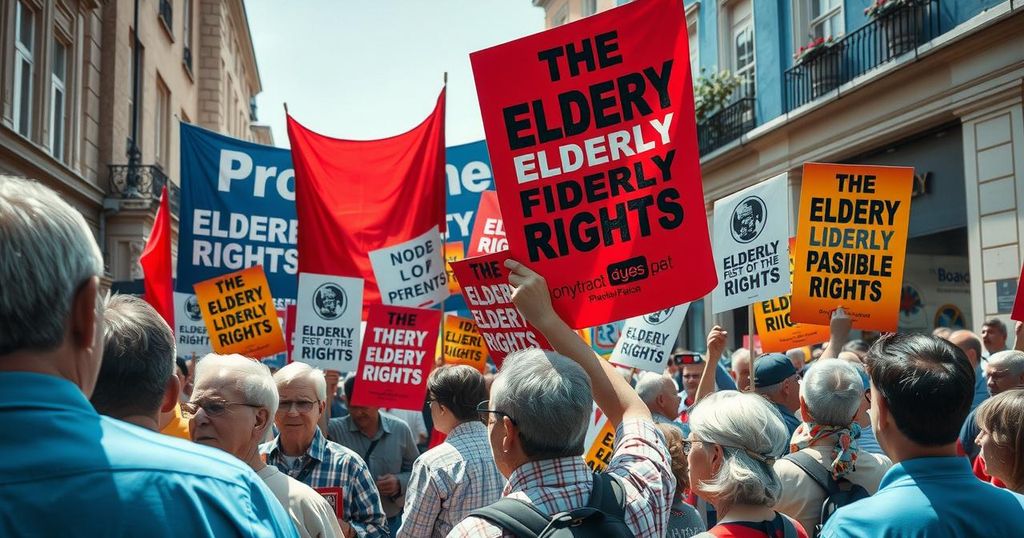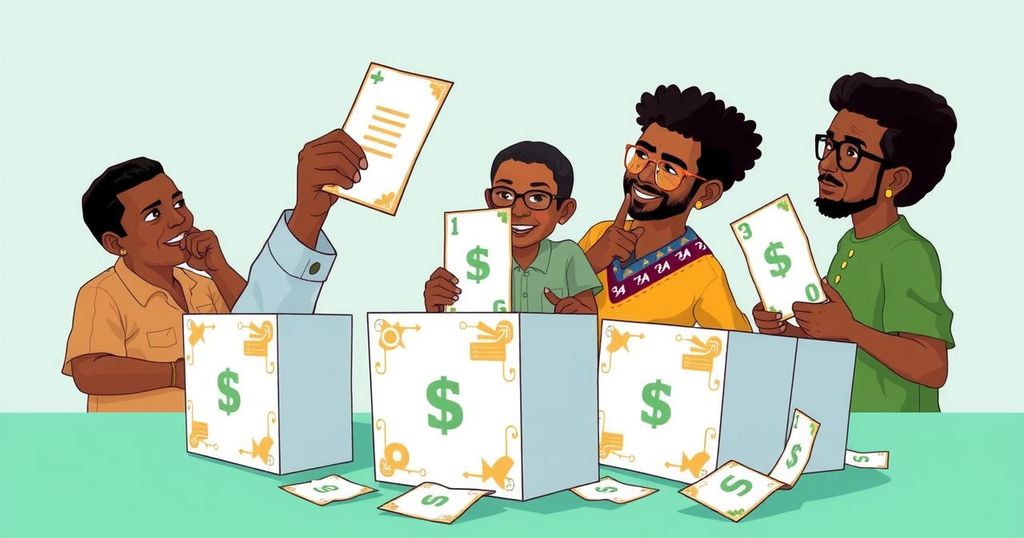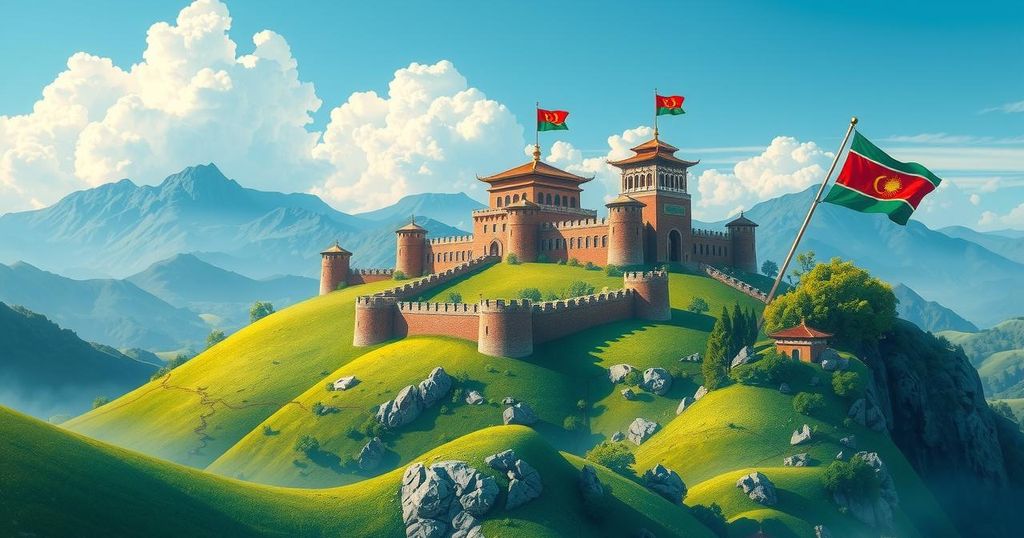Journalists in the DRC face grave threats to press freedom in the context of ongoing conflict, including harassment, arrest, and financial strain. Figures like Philip Mayifilua and Dame Tuluka illustrate the risks they encounter while striving to report truthfully. Despite severe challenges, efforts to support independent journalism persist, highlighting the critical importance of media integrity in the DRC.
In the Democratic Republic of Congo (DRC), journalists face significant threats to press freedom, particularly amidst ongoing conflicts. Philip Mayifilua, a journalist, was arrested after discussing media issues on a radio program where he criticized the harassment of journalists. He was subsequently accused by the country’s media regulatory body, the Higher Council for Audiovisual and Communication (CSAC), of supporting the M23 rebel group, prompting him to flee to Uganda.
Mayifilua’s situation highlights broader media challenges in the DRC. The CSAC recently condemned three major French news outlets for perceived bias in their conflict coverage. Additionally, the M23 has reportedly taken control over Goma, resulting in thousands of fatalities and displacements. This hostile environment has led many journalists to self-censor or flee the country to escape threats and violence.
Both government forces and the M23 rebels have severely restricted press freedoms. Journalists are often targeted for reporting on sensitive issues, compelled to avoid topics that may provoke retaliation. Due to governmental pressure, many media outlets have ceased operations, and journalists face looting of their equipment.
Further illustrating these dangers, freelance journalist Dame Tuluka experienced harassment at the Rwandan border, where customs agents accused her of espionage and detained her for several hours. Her ordeal underscores the psychological trauma confronting DRC journalists, as Tuluka expressed lingering fear of reprisal.
Economic pressures compound the challenges faced by journalists in the DRC. Many are unable to report freely or adequately support their families. Tuluka, for instance, has not been able to find work since Goma fell under rebel control, leading her into a cycle of debt.
Organizations like the Ukweli Coalition advocate for the safety of journalists and support cross-border investigative journalism. Gilbert Bukeyeneza, the coalition’s founder, urges journalists to remain safe amidst governmental and rebel pressures. Cross-border collaboration with journalists from neighboring East African countries is seen as a potential avenue for promoting diverse narratives, although challenges in trust and varied perspectives in coverage persist.
Mayifilua and Tuluka exemplify the determination of Congolese journalists facing severe risks. Mayifilua expressed his commitment to fight for press freedom, stating, “We must fight for a free press. It is a perpetual battle, and I am not ready to stop.” Their resolve illustrates the critical need for a resilient and independent media in the DRC.
In conclusion, journalists in the DRC are enduring serious threats while striving to uphold press freedom amidst conflict. Their challenges include governmental censorship, harassment from rebel groups, financial stresses, and self-censorship due to fear of retaliation. Despite these obstacles, journalists like Philip Mayifilua and Dame Tuluka remain committed to reporting truthfully and advocating for a free press, underscoring the vital role of independent journalism in promoting accountability and social change in their communities.
Original Source: ijnet.org




